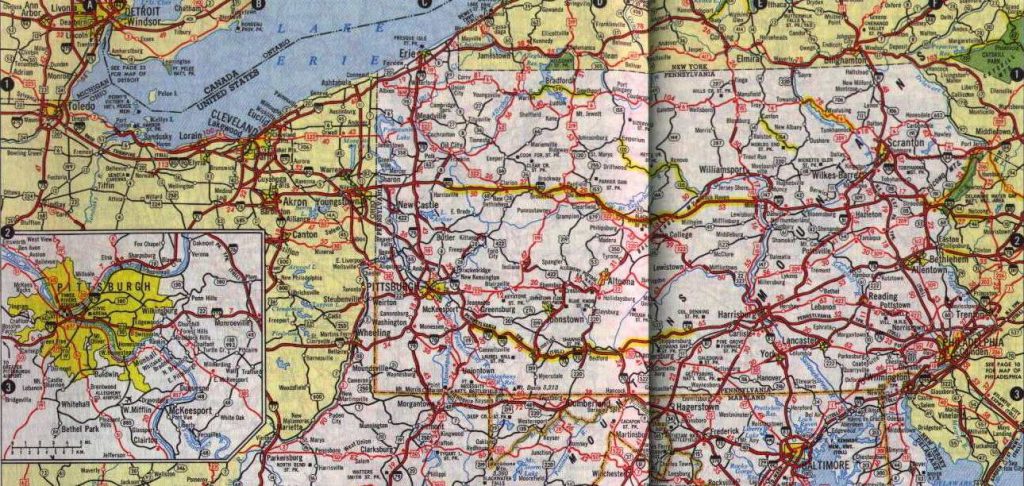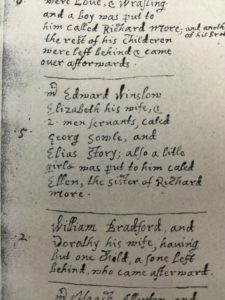 I am definitely regretting getting into the “ladies” sketches for the Early New England Families Study Project. While working on the sketch for William Lord of Saybrook, Connecticut, who had fifteen children by two wives, I recognized that his second wife also had at least one child by her first husband, John Brown of Swansea, which qualifies her for an Early New England Families sketch of her own. Continue reading Are we having fun yet?
I am definitely regretting getting into the “ladies” sketches for the Early New England Families Study Project. While working on the sketch for William Lord of Saybrook, Connecticut, who had fifteen children by two wives, I recognized that his second wife also had at least one child by her first husband, John Brown of Swansea, which qualifies her for an Early New England Families sketch of her own. Continue reading Are we having fun yet?
Category Archives: American History
Hunting for a church

While working in the Ask-a-Genealogist questions last week, I found myself looking at questions on where to turn for records to prove the baptisms or residences of ancestors, which are actually rather typical. However, in offering guidance to these individuals, I realized how little the hunt was for the ancestor and how important the hunt for the church or town would be. Continue reading Hunting for a church
Italian emigration to one Rhode Island town

Growing up in Westerly, Rhode Island, a town in which more than 30% of residents identify as having Italian ancestry, I was always surrounded by Italian culture.[1] To this day, many people from other towns are surprised to hear that my high school offered Italian language courses, a fairly uncommon option. Even fewer had heard of Soupy, the nickname for soppressata, the cured meat which originated in Calabria that hangs in the basements and attics of Westerly residents during certain times of the year. (The meat curing process requires outdoor temperatures of 45 to 55 degrees Fahrenheit.)[2] Continue reading Italian emigration to one Rhode Island town
Overseas military naturalizations
 For a recent research case, I was trying to locate a naturalization record which had been listed in an index to the Declarations of Intention, U.S. District Court, Southern District of New York 1917-1950, at FamilySearch.org. However, when searching through the actual records, I found that the file number for this record was attached to a record with another person’s name. Continue reading Overseas military naturalizations
For a recent research case, I was trying to locate a naturalization record which had been listed in an index to the Declarations of Intention, U.S. District Court, Southern District of New York 1917-1950, at FamilySearch.org. However, when searching through the actual records, I found that the file number for this record was attached to a record with another person’s name. Continue reading Overseas military naturalizations
Maine’s lost colony

Recently a patron asked me why he was unable to find information on his ancestors who arrived before the Mayflower. I explained that Plymouth Colony was the first permanently settled colony in New England. What I told him was technically true, but I later discovered that an earlier colony had been established in Maine. During the late sixteenth and early seventeenth centuries, England, France, and Spain all had their eyes on the New World, hoping to take advantage its great wealth of resources. Continue reading Maine’s lost colony
Road trips
 It is summer time and the siren call of the road echoes through my mind: “Come explore! Leave your desk and your clutter. Forget the phone, pack your car and come explore!” When we were children, summer meant road trips to far off and “exotic” places such as Nova Scotia, Prince Edward Island, and Quebec. One memorable summer we took a four-week camping trip across the country from Washington, D.C., to the Colorado Rockies to explore the old Moffat Railroad over the Continental Divide. Four squirming children and two adults crammed into a Dodge Sedan towing a trailer with the tent and other camping gear (no pop-up camper for our family). Continue reading Road trips
It is summer time and the siren call of the road echoes through my mind: “Come explore! Leave your desk and your clutter. Forget the phone, pack your car and come explore!” When we were children, summer meant road trips to far off and “exotic” places such as Nova Scotia, Prince Edward Island, and Quebec. One memorable summer we took a four-week camping trip across the country from Washington, D.C., to the Colorado Rockies to explore the old Moffat Railroad over the Continental Divide. Four squirming children and two adults crammed into a Dodge Sedan towing a trailer with the tent and other camping gear (no pop-up camper for our family). Continue reading Road trips
ICYMI: “If the shoe fits”
[Editor’s note: This blog post originally appeared in Vita Brevis on 13 May 2015.]

David Allen Lambert’s April post on livelihoods inspired me to consider my own “family’s business.” In looking at my ancestry, one occupation pops up again and again and again: shoemaker. From Great Migration immigrants to Italian calzolai to French-Canadian shoe factory workers, my ancestors knew shoes.
The earliest shoemakers or cordwainers to New England arrived in 1629.[1] My ancestor (on my father’s side) Anthony Morse (abt. 1607–1686) arrived in Newbury aboard the James in 1635 with his brother William. Both appear on a passenger list as shoemakers.[2] Continue reading ICYMI: “If the shoe fits”
‘At what a terrible cost’
[Author’s note: This series of excerpts from Regina Shober Gray’s diary began here.]

Hotel Baus-au Lac, Zurich, Sunday, 14 July 1878: The sweet clangor of changing bells fills the air, curiously crossed, to our New England ears, by waltz music from a band near by! The day is overcast & it is no use to go to see an Alpine view under cloudy skies!
Our ride here from Ragaz on Thursday P.M. would have been lonely but for the “rain, that raineth every day” and persecutes us! We skirted the beautiful Wallensee,[2] with its high mountains, exquisite cascades, ruined farms, villas, &c., all wh[ich] we could see & enjoy from our nice 1st class [train] car, wh. we had to ourselves – but the more distant views of opening valley & lovely vistas were shut out; and for part of the ride on [the] borders of Zurich Lake we might as well been looking out over an open, fog-ridden ocean. Continue reading ‘At what a terrible cost’
Birth order vs. will order
 In the Early New England Families Study Project sketch for Joseph Andrews of Hingham, I included a commentary about the problem I was having establishing the birth order for Joseph’s children. Recently, an inquirer wondered why I had not used the order the children are named in Joseph’s will.[1]
In the Early New England Families Study Project sketch for Joseph Andrews of Hingham, I included a commentary about the problem I was having establishing the birth order for Joseph’s children. Recently, an inquirer wondered why I had not used the order the children are named in Joseph’s will.[1]
Heirs can be listed in a will in any way the testator wants, but there are legal precedents that encourage listing children by birth order. Sometimes all the sons are named first, then all the daughters, and sometimes they are intermixed. Sometimes the testator specifies “eldest son, second son,” but others do not, and while we might assume birth order, it is not guaranteed. Continue reading Birth order vs. will order
A New England Hogwarts

In 2014, I wrote a blog post about the greatness that is J.K. Rowling. My main point was that, as in your own genealogical research, a properly told story – whether fiction or non-fiction – demands a complex, well-researched treatment. Where and when were your characters born? Who were they named after? What nationality/ethnic group do your characters identify with? What is their religion or family tradition?
For most, the influence of family (both real and imagined) will play a significant role in the narrative of your story. Therefore, if you wish to tell your story in the most accurate way, it is important to research and document those who have come before you. This will help to place them into the larger narrative of their family history. Continue reading A New England Hogwarts